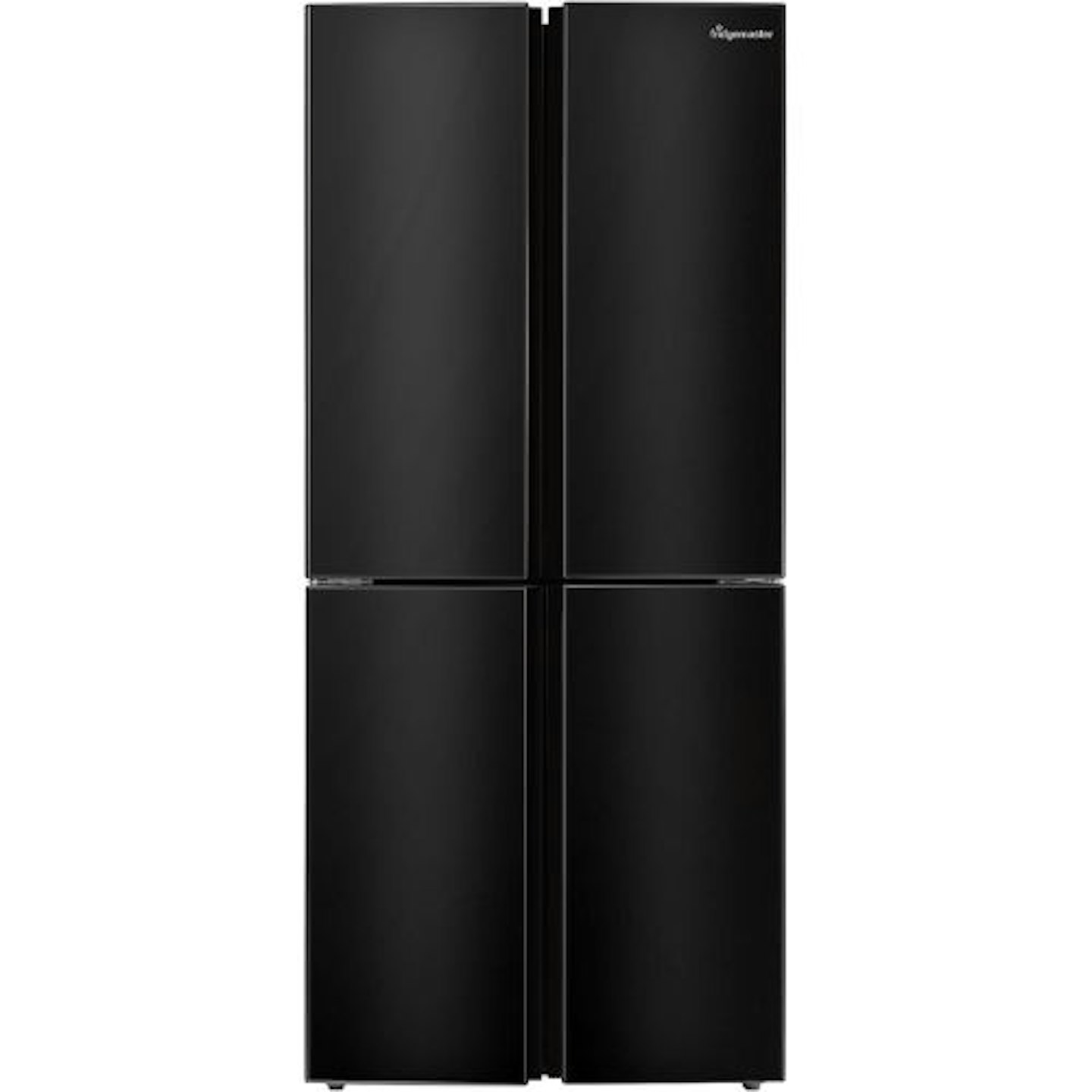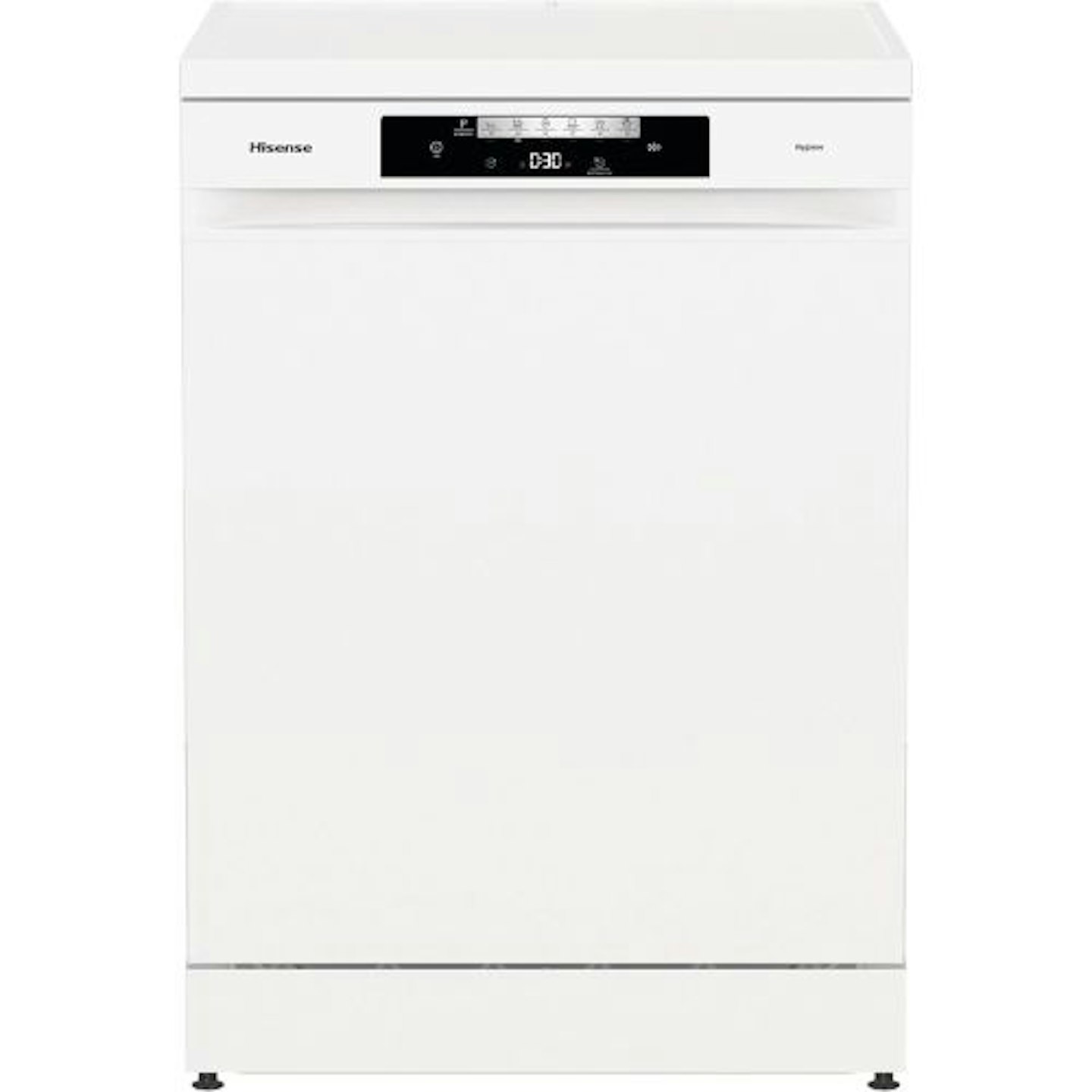Nesting in pregnancy is a primal urge dating back to cavewoman times, so embrace your new obsession with cleaning and decluttering…
You’re in your third trimester and seriously need to put your feet up on the sofa. So why is it that you suddenly decide to redecorate your lounge, turn into Bake Off's Nadiya Hussain in the kitchen, orclean the bathroom like Mrs Hinch?
Say hello to the nesting instinct! This urge to clean, tidy and bake is a primal instinct that goes back thousands of years. Even birds and small mammals do it – and it’s completely normal.
A study has found that while not all mums-to-be experience the nesting instinct, many women do get this urge, stemming from an inbuilt need to protect and prepare for your unborn baby. It also helps increase your oxytocin levels.
‘And the nesting instinct can be very useful,’ says psychologist Dr Sandra Wheatley. ‘There’s a practical, psychological, problem-solving drive behind the urge. When your baby arrives, life will be all about them. And you are meant to rest when they sleep – you don’t want to be cleaning under the sofa then! Embracing the nesting instinct is a good way of minimising the amount of things that might tempt you not to rest once your baby arrives.’
Eight top tips for pregnancy nesting
-
Attach reassuring labels to remind yourself the job is done. A ‘packed and ready to go!’ tag tied onto the handle of your hospital bag when it's fully packed will make you feel great.
-
Have a five-minute delay: when you feel the urge to paint the lounge, set the timer on your phone and do something to distract yourself. Chances are, the urge will have passed when the timer sounds.
-
Add star ratings to your to-do list: three stars for ‘must-do’ tasks, two for ‘would be good to do’ and one for ‘could do after baby is born’. Start with the three-star tasks, and tick them off as you complete them so you have visual reassurance that you’re making progress.
-
Put you on your to-do list and use your nesting instinct to properly nurture yourself ready for your baby’s arrival.
-
Use pregnancy-safe cleaning products and paint so you don’t expose yourself to harmful chemicals. Ecover Multi-Action Spray (£2.50, tesco.com) uses plant and mineral ingredients and leaves no residue or smells.
-
Practise asking family and friends for help: it’s good to get in the habit ready for when your baby is born, and delegating tasks on your to-do list will get more done.
-
Put yourself on the clock and work in time slots to make sure you don’t overdo it. Set an alarm and also decide what you’ll do to have a rest when it sounds, even if it’s just having a nice cup of pregnancy safe herbal tea. That way, you’re far more likely to actually rest.
-
Get professional help for the jobs you shouldn’t be doing. Lifting furniture is a big no-no when you’re this pregnant – find charities that will collect unwanted items at frn.org.uk
Nesting helps you feel prepared
No matter if this is your first or your fifth baby, you can never fully anticipate how life will change when he arrives. But your nesting instinct, as it descends sometime in your third trimester, can help you feel at least partly prepared for life after your baby is born.
Obsessively cooking meals from your favourite family cookbook, re-arranging your baby’s clothes and tidying are all common symptoms. ‘And opening your freezer drawer and seeing loads of labelled meals will make you feel good – it’s physical proof that you’re getting ready,’ says Sandra. ‘And planning for the future in this way is good practice for being a parent. It’s a skill honed through your pregnancy that will continue to grow as your child grows.’
Many of us work until as late as possible in our pregnancies, and this can mean the nesting instinct kicks in before we start maternity leave. ‘Understand that the impulse to nest can override everything else,’ explains Sandra.
‘It’s a compulsion! So if you’re still at work, this can be difficult as you can’t give it full rein.’ A good solution is to plan short but intense periods of nesting. Set time aside on weekends to do an hour of cleaning or to sort through your wardrobe. But if you don’t feel like it when the allocated time comes, don’t worry, just use that time to put your feet up instead.
While we're all too conscious as to how expensive parenthood can be, in this nesting period, you might also want to consider upgrading your appliances in preparation for your little one to make your first year with baby that little bit easier.
 Fridgemaster
FridgemasterTake for example a new fridge freezer. If you've currently got a smaller fridge freezer, you may find upgrading to a larger model like this Fridgemaster American 4 Door is just what you need. With 427L capacity (149L of which is freezer space), having that space could prove to be a godsend if you're looking to meal prep before baby arrives. Having a fridge fully stocked is vital once your newborn arrives, so you don’t need to worry about staying nourished and hydrated while feeding your baby.
Plus, if you're planning to breastfeed, you'll have more room to freeze batches of your milk without risk.
It's also worth saying that if your old fridge freezer has seen better days, getting a new, reliable fridge freezer now could save any extra stress if it breaks once baby arrives. And if you've already got a growing family, you know all that fridge freezer space won't go to waste.
 Hisense
HisenseAnother thing we could happily do without when baby arrives is washing dishes, a chore that's time-consuming even without juggling a newborn. If you don't currently have a dishwasher, opting for an affordable model like the Hisense HS622E90WUK makes the task a whole lot easier and saves you precious time. Or, if your current dishwasher is on the way out, again you can get a new one ready before baby arrives.
You'll also find many baby bottles are dishwasher safe too so you can ensure your baby's bottle is clean and ready for use (though make sure to sterilise as well). There are even some breast pumps with parts you can put in the dishwasher, helping to keep it safe and sanitary for use.
Ideal for small to medium-sized households, this dishwasher has 13 place settings, with 7-8 wash settings for efficient and effortless cleaning.
How do I fold baby clothes neatly?
They may be small and cute, but baby clothes can be a bit of a pain to fold neatly. As tempting as it is to shove them into a drawer, folding and organising your baby’s clothes neatly will save you a lot of time (and creases), not to mention making that nesting brain very happy. There’s only one person who knows how to satisfyingly fold clothes to perfection, and that’s Marie Kondo – check out her KonMari method here.
Manage the nesting urge
Your to-do list is likely to grow, and grow, under the influence of this instinct. And it’s important to get a balance between what you want to achieve and what you can achieve. Your hormones mean you’re not necessarily at your most rational at this point, and the compulsion to do less than essential jobs can be strangely strong.
‘We’ve all got jobs at home that we maybe do every year or two – for me it’s painting the skirting boards and defrosting the freezer,’ says Sandra. ‘And somewhere in the back of your brain, a voice will be telling you that you simply won’t have time to do those things once your baby is here. Or that you will have to pay someone else to do them. There will be all sorts of rationales going on in your mind about why you have to paint those skirting boards right now.’
However, you’re heavily pregnant, so it’s important not to overdo it. ‘Make a Plan A of what you want to achieve before your baby is born,’ suggests Sandra. ‘But make a Plan B and a Plan C as well.’ Put deadlines on these lists and prioritise them with your partner, but also accept that once your baby arrives, your priorities will probably change.

Think before you act
‘Moving from being a couple to a family is a watershed moment, and you will want to overhaul how you live,’ says Sandra. With a new person coming into your home, many women feel space is at a premium. ‘This means you will feel as if you have got to get rid of some of your stuff because it’s taking up too much space,’ Sandra adds.
This feeling quickly disappears once your baby is born: the study found women showed no signs of it eight weeks after giving birth. So make sure you really want to get rid of that chair and won’t regret it when your nesting instinct has lifted. ‘Before you throw anything out, take a breath and think about why you want to get rid of that piece of furniture or item of clothing,’ suggests Sandra. ‘Once you’ve given some rational thought to it, if you’re still sure it’s what you want to do, go ahead.’
Set your nesting limits
‘Nesting in pregnancy is such a strong urge that, for some women, there is a point it can tip into negative behaviour,’ says Sandra. ‘You might reach a point when you are no longer just tidying your things, but you’re tidying up the things of all the people around you too. Or you may find yourself throwing your partner's clothes away as well as your own.’
The answer is close to hand: ‘Use your partner or a close friend as a personal handbrake if you’re feeling this way,’ Sandra suggests. ‘Talk about how you’re feeling – and do it as you both go for a walk. That will give you some space to think about it rationally. Try to pinpoint why you feel you need to be so organised. What is the key to all of this? It might be you’re anxious about your baby coming early.’
Do something about that – perhaps repacking your hospital bag would reassure you that you’ve got this particular aspect covered.
‘And then you will probably find you can relax a little and take pleasure in preparing for your baby’s arrival,’ adds Sandra.
Spend time in your nest
The Canadian study revealed a fascinating detail about the nesting instinct: that mums-to-be who felt this urge also became more selective about the company they kept, preferring to spend time with people they know and trust. ‘And it’s good to spend some extra time with your friends and family now,’ says Sandra. ‘You’re going to be busy with your baby soon, and probably a little sleep deprived too, so fill up that bank of friendship and love beforehand.’
Embracing this aspect of the nesting instinct can bring a real feeling of wellbeing too. ‘Spend time reflecting on the people around you,’ suggests Sandra. ‘You can do it while you’re driving or sitting down on the sofa: simply think about the people who are important in your life and what they mean to you.’
